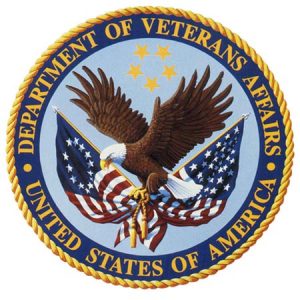 Fausett Law specializes in real estate law including the finer points of VA home loan requirements.
Fausett Law specializes in real estate law including the finer points of VA home loan requirements.
Our experienced attorneys can counsel you on what you need to know in regards to the newest developments with mortgage rules and home loans with the US Department of Veterans Affairs.
We have republished the article below which originally appeared in the Chicago Tribune to share this information with our readers.
If you have any questions please call us at 630.858.0090
A Letter from the Department of Veterans Affairs:
In a recent column that discussed the Department of Veterans Affairs home loan program, it was reported that it will likely take a lender a lot longer to process a VA loan than a Federal Housing Administration loan and that VA has to approve each loan. Those statements are incorrect.
In fact, approximately 99 percent of VA lenders have “automatic authority” to underwrite and close loans without prior approval. Moreover, the time-to-close for VA loans (from loan application to funding) is on par with conventional or FHA products.
According to the most recent data from Ellie Mae, VA loans close in an average of 51 days, versus 49 days for FHA loans and 48 days for conventional loans. The difference of two and three days does not justify the published statement of “a lot longer.”
Every movement counts. Automatic activity tracking, sleep monitoring and up to 8-month battery life help keep your health on track.
Another point in the article that requires clarification is the statement that VA requires many borrowers to pay a funding fee, which can range between 0.5 and 3.3 percent.
This is not a full picture of VA home loan funding fees. Yes, fees range between 0.5 percent and 3.3 percent. But the fee variations depend not only on the permutations of the borrower’s military service, they also vary depending on the first or subsequent use of the benefit, and the amount of money the borrower might select to contribute as a down payment.
Especially since this piece clearly focuses on a 20 percent down payment, the different variations should be mentioned. More specifically, for borrowers who make more than a 10 percent down payment, the funding fee for first use or subsequent use of the benefit is 1.25 percent for veterans and 1.5 percent for reservists/the National Guard.
We appreciate that the article correctly reports that disabled veterans and surviving spouses are exempt from the funding fee. VA notes that in sum, roughly 40 percent of VA borrowers do not pay a VA funding fee.
We appreciate your efforts to inform consumers about the availability of this important benefit for service members, veterans and surviving spouses.
— Jeff London, acting director, Loan Guarantee Service, Washington, D.C.
Letter from a reader:
As a veteran refinancing a loan through my current lender, I thought it would be a relatively straightforward (and I knew already it was lengthy) process. I’d not missed a payment in 12 years, had a FICO score of 800-plus, and sufficient assets and income for what I thought was an easy and efficient process and close.
However, I soon learned that my lender had a near-impossible time in doing the simple task of simply transferring my real estate tax escrow balance to the new loan. The loan officer also asked questions multiple times, and wanted immediate responses, with veiled threats the loan would not close on time and I’d have to start the process over. The process seemed to go as planned for a few weeks, then in the last two weeks before close, the loan officer wanted information that should have been requested earlier in the process.
It was a nerve-racking experience. My advice is for any veteran to learn whether their loan officer actually has VA loan experience, even if with a different lender, before starting the application process. I believe mine said he did, when he really didn’t know the fine points.
— Mason, U.S. Army, 1969-71
My response:
Thanks, Mason, we all appreciate your service for our country, and you have given good advice. You were not complaining about the VA loan process, but only about the “inexperienced” loan officer. From my experience, this problem is not limited to VA loans. There are a lot of loan officers who have not been given the proper training.
Benny Kass is a practicing attorney in Washington, D.C., and in Maryland. He does not provide specific legal or financial advice to any reader. Readers may email him, but he cannot guarantee a personal response.
Contact the author: mailbag@kmklawyers.com
* To the extent that the information on this blog post is interpreted as attorney advertising in accordance with the Illinois Rules of Professional Conduct or within the meaning of state bar rules from all other localities, this statement is made pursuant to those rules.

